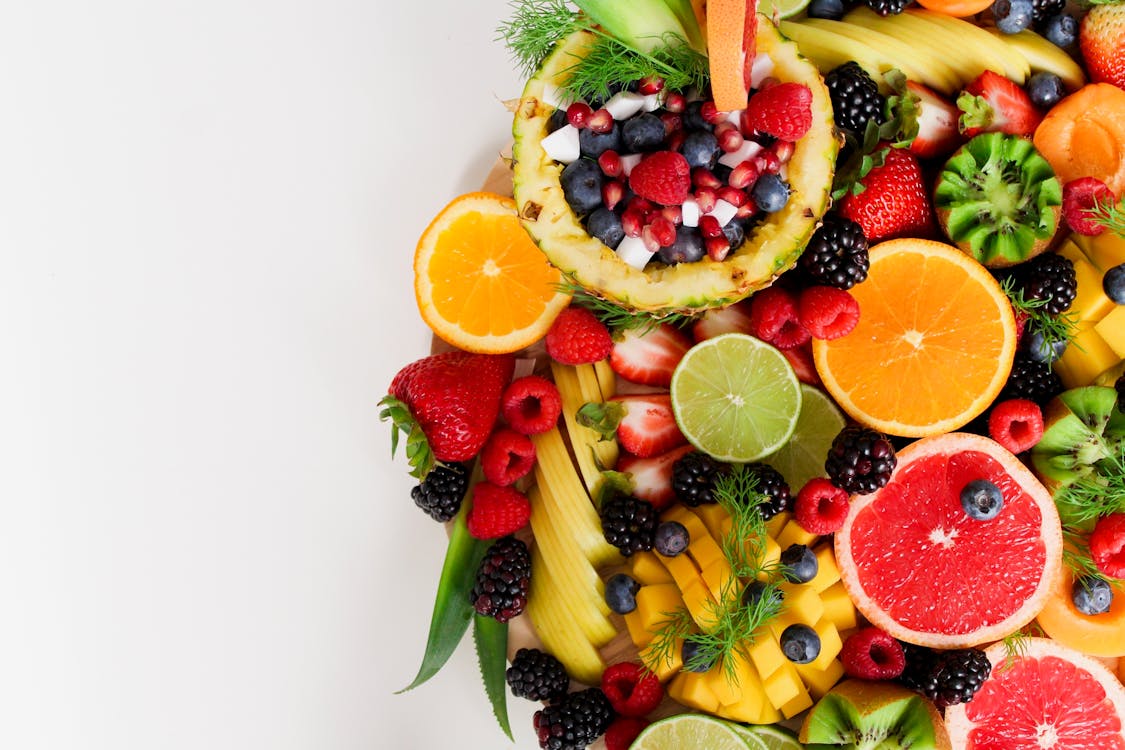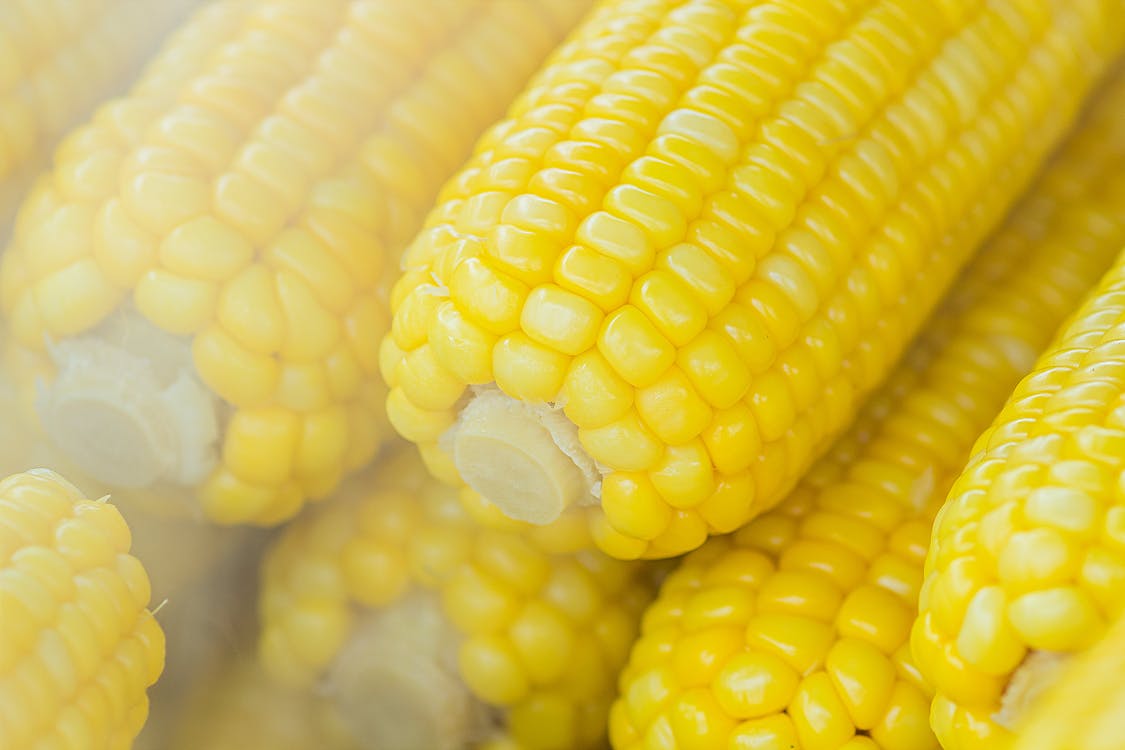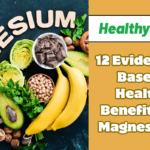12 High Carb Foods That are Incredibly Healthy
1. Quinoa:
Quinoa stands out not just for its high carbohydrate content but also for its exceptional nutritional profile. This ancient grain is renowned for being a complete protein source, containing all nine essential amino acids that our bodies cannot produce on their own. Beyond protein, quinoa is rich in fiber, which supports digestive health by promoting regular bowel movements and aiding in the maintenance of a healthy gut microbiome.
Quinoa provides a variety of vitamins and minerals, including manganese, magnesium, phosphorus, and folate. These nutrients play crucial roles in energy metabolism, bone health, and the synthesis of DNA and proteins. Quinoa’s complex carbohydrates are digested slowly, leading to sustained energy levels without causing rapid spikes in blood sugar levels.
2. Sweet Potatoes:
Sweet potatoes are not only delicious but also packed with nutrients, making them a highly beneficial high-carbohydrate food. They are rich in complex carbohydrates, which provide a steady release of energy, making them an excellent choice for sustaining energy levels throughout the day.
Beyond carbohydrates, sweet potatoes are loaded with vitamins and minerals. They are particularly high in vitamin A, which supports vision health, immune function, and skin integrity. Sweet potatoes also contain significant amounts of vitamin C, an antioxidant that boosts immune function and helps in the absorption of iron from plant-based foods.
Read Also:
Healthy Foods For Keeping Healthy Weight In Winters Cold
3. Bananas:
Bananas are not just a convenient snack but also a nutritional powerhouse rich in essential nutrients. One of their standout features is their high potassium content, which is crucial for maintaining proper heart function, muscle contractions, and nerve signals. Potassium also helps regulate fluid balance in the body, which is important for overall hydration and electrolyte balance, especially during physical activity.
Bananas are a good source of vitamin C, vitamin B6, and fiber. Vitamin C acts as an antioxidant, supporting immune function and promoting skin health. Vitamin B6 is involved in brain development and function, as well as in the production of neurotransmitters that regulate mood and sleep patterns. The fiber content in bananas aids in digestion by promoting regular bowel movements and supporting gut health. It also helps regulate blood sugar levels, preventing rapid spikes and crashes after meals.

4. Oats:
Oats are revered for their nutritional benefits and versatility in culinary applications. As a complex carbohydrate, oats provide a steady release of energy, making them an ideal choice for sustaining energy levels throughout the morning. They are also rich in soluble fiber, particularly beta-glucan, which helps reduce cholesterol levels, improve heart health, and promote feelings of fullness.
Oats contain a range of vitamins and minerals, including manganese, phosphorus, magnesium, and zinc. These nutrients play essential roles in energy metabolism, bone health, and immune function. Oats are also relatively low on the glycemic index, meaning they have a mild impact on blood sugar levels compared to refined grains.
5. Legumes:
Legumes encompass a diverse group of plant-based foods that include beans, lentils, chickpeas, and peas. They are prized for their nutritional density, offering a balance of carbohydrates, fiber, and plant-based protein. This combination not only provides sustained energy but also promotes digestive health and contributes to satiety, making legumes a valuable addition to any diet.
One of the key benefits of legumes is their high fiber content, which supports digestive regularity and helps maintain healthy cholesterol levels. Fiber also plays a role in stabilizing blood sugar levels, which is beneficial for preventing insulin spikes and maintaining energy levels throughout the day. Additionally, legumes are rich in vitamins and minerals such as folate, iron, magnesium, and potassium, all of which contribute to overall health and well-being.
6. Whole Grains:
Brown rice, barley, and whole wheat are integral components of a nutritious diet due to their rich content of healthy carbohydrates, essential nutrients, and dietary fiber. Unlike refined grains, which undergo processing that removes the bran and germ, whole grains retain these nutrient-dense parts, offering a plethora of health benefits.
Whole grains provide sustained energy due to their complex carbohydrate composition, which breaks down slowly in the body, providing a steady release of glucose into the bloodstream. This steady energy supply helps maintain stable blood sugar levels and prevents the energy crashes associated with refined grains.
7. Fruits:
Fruits are nature’s sweet treasures, offering a delicious source of healthy carbohydrates derived from natural sugars. Beyond their sweetness, fruits are packed with an array of essential vitamins, minerals, and antioxidants that contribute to overall health and well-being.
Fruits are rich in vitamin C, potassium, folate, and various phytonutrients, depending on the type of fruit. Vitamin C acts as an antioxidant, supporting immune function and promoting healthy skin. Potassium plays a vital role in nerve function, muscle contractions, and maintaining healthy blood pressure levels. Fruits also contain antioxidants such as flavonoids and carotenoids, which help protect cells from damage caused by free radicals.

Read Also:
11 Best Ways to Improve Your Digestion
8. Milk:
Dairy milk is a fundamental component of many diets, prized for its natural richness in lactose, a carbohydrate that provides sustained energy throughout the day. Beyond its carbohydrate content, milk is also celebrated for its high-quality protein and calcium content, essential for supporting bone health and muscle function.
The carbohydrates in milk, primarily in the form of lactose, contribute to its slightly sweet taste and provide a stable source of energy. Lactose is a natural sugar that breaks down more slowly in the body compared to refined sugars, helping to maintain stable blood sugar levels and providing long-lasting energy. This makes milk a great choice for a morning beverage or as a nutritious addition to meals throughout the day.
9. Yogurt:
Yogurt, like milk, is a dairy product rich in lactose, carbohydrates, protein, and beneficial probiotics that support gut health. Its creamy texture and tangy flavor make it a versatile ingredient suitable for both sweet and savory dishes, from breakfast bowls to marinades and sauces.
Carbohydrates in yogurt primarily come from lactose, providing a natural source of energy that is slowly released into the bloodstream, helping to maintain steady blood sugar levels throughout the day. The balanced combination of carbohydrates and protein in yogurt makes it a satisfying snack or meal component that supports sustained energy and satiety.
Probiotics, or beneficial bacteria found in yogurt, play a crucial role in supporting digestive health and immune function. These live cultures help maintain a healthy balance of gut bacteria, which is essential for digestion, nutrient absorption, and overall well-being. Regular consumption of yogurt can help improve digestion, reduce inflammation in the gut, and support immune responses against pathogens.
10. Corn:
Corn is a versatile and nutritious carbohydrate-rich food that offers a range of vitamins, minerals, and dietary fiber. Whether eaten fresh on the cob, canned, or popped as popcorn, corn provides quick energy from its natural sugars, alongside fiber that promotes digestive health and helps regulate blood sugar levels.
The carbohydrates in corn predominantly come from starch, which is broken down into glucose during digestion, providing a quick source of energy for the body. This makes corn an excellent choice for replenishing energy levels during or after physical activity, or as a satisfying snack between meals.
Corn is a good source of essential vitamins and minerals such as vitamin C, thiamine (vitamin B1), and folate. These nutrients contribute to overall health by supporting immune function, nerve function, and energy metabolism. Corn also contains antioxidants like lutein and zeaxanthin, which promote eye health and protect against age-related macular degeneration.
11. Beets:
These vibrant root vegetables are not only rich in carbohydrates but also packed with fiber and antioxidants. Beets offer sustained energy, promote digestive health, and support detoxification processes in the body. Whether roasted, boiled, or grated raw into salads, beets add color, flavor, and nutritional value to dishes, making them a versatile and nutritious addition to any meal.
Beets are also high in inorganic nitrates, which are converted into nitric oxide in the body. Nitric oxide lowers blood pressure and may decrease the risk of several diseases. That’s because nitric oxide relaxes your blood vessels, allowing oxygen to flow more efficiently during exercise. Due to this, beets are some of the best carb foods, which are extremely healthy for the body.

Read Also:
12. Bread:
Opting for whole grain bread over refined white bread provides a healthier source of carbohydrates, along with essential nutrients and dietary fiber. Whole grain bread offers sustained energy, promotes digestive health, and helps regulate blood sugar levels. Its hearty texture and nutty flavor enhance the taste and nutritional profile of sandwiches, toast, and other baked goods. Choosing whole grain bread contributes to a balanced diet and supports overall health and well-being.




